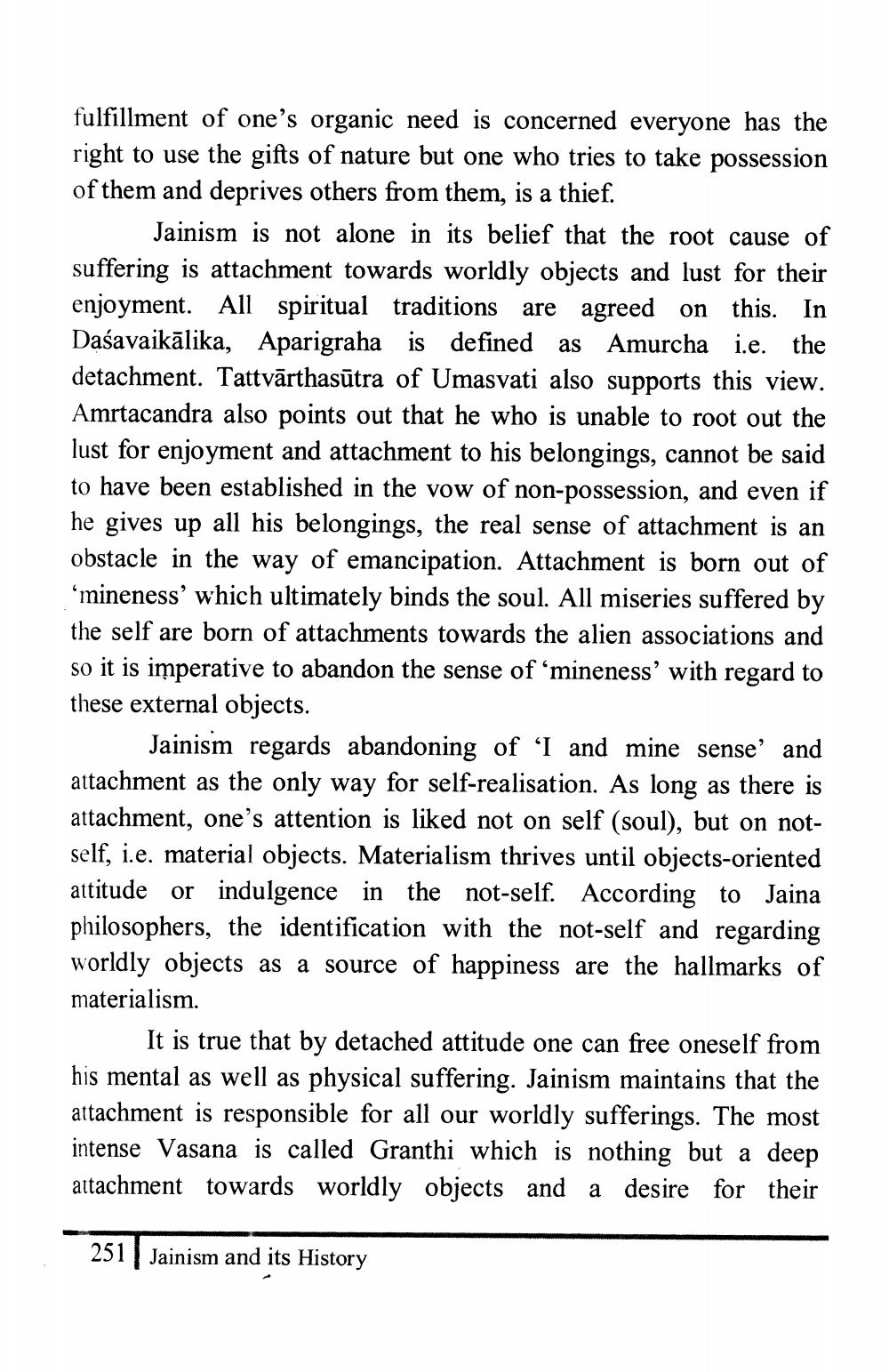________________
fulfillment of one's organic need is concerned everyone has the right to use the gifts of nature but one who tries to take possession of them and deprives others from them, is a thief.
Jainism is not alone in its belief that the root cause of suffering is attachment towards worldly objects and lust for their enjoyment. All spiritual traditions are agreed on this. In Daśavaikālika, Aparigraha is defined as Amurcha i.e. the detachment. Tattvärthasutra of Umasvati also supports this view. Amrtacandra also points out that he who is unable to root out the lust for enjoyment and attachment to his belongings, cannot be said to have been established in the vow of non-possession, and even if he gives up all his belongings, the real sense of attachment is an obstacle in the way of emancipation. Attachment is born out of 'mineness' which ultimately binds the soul. All miseries suffered by the self are born of attachments towards the alien associations and so it is imperative to abandon the sense of 'mineness' with regard to these external objects.
Jainism regards abandoning of 'I and mine sense' and attachment as the only way for self-realisation. As long as there is attachment, one's attention is liked not on self (soul), but on notself, i.e. material objects. Materialism thrives until objects-oriented attitude or indulgence in the not-self. According to Jaina philosophers, the identification with the not-self and regarding worldly objects as a source of happiness are the hallmarks of materialism.
It is true that by detached attitude one can free oneself from his mental as well as physical suffering. Jainism maintains that the attachment is responsible for all our worldly sufferings. The most intense Vasana is called Granthi which is nothing but a deep attachment towards worldly objects and a desire for their
251 Jainism and its History




